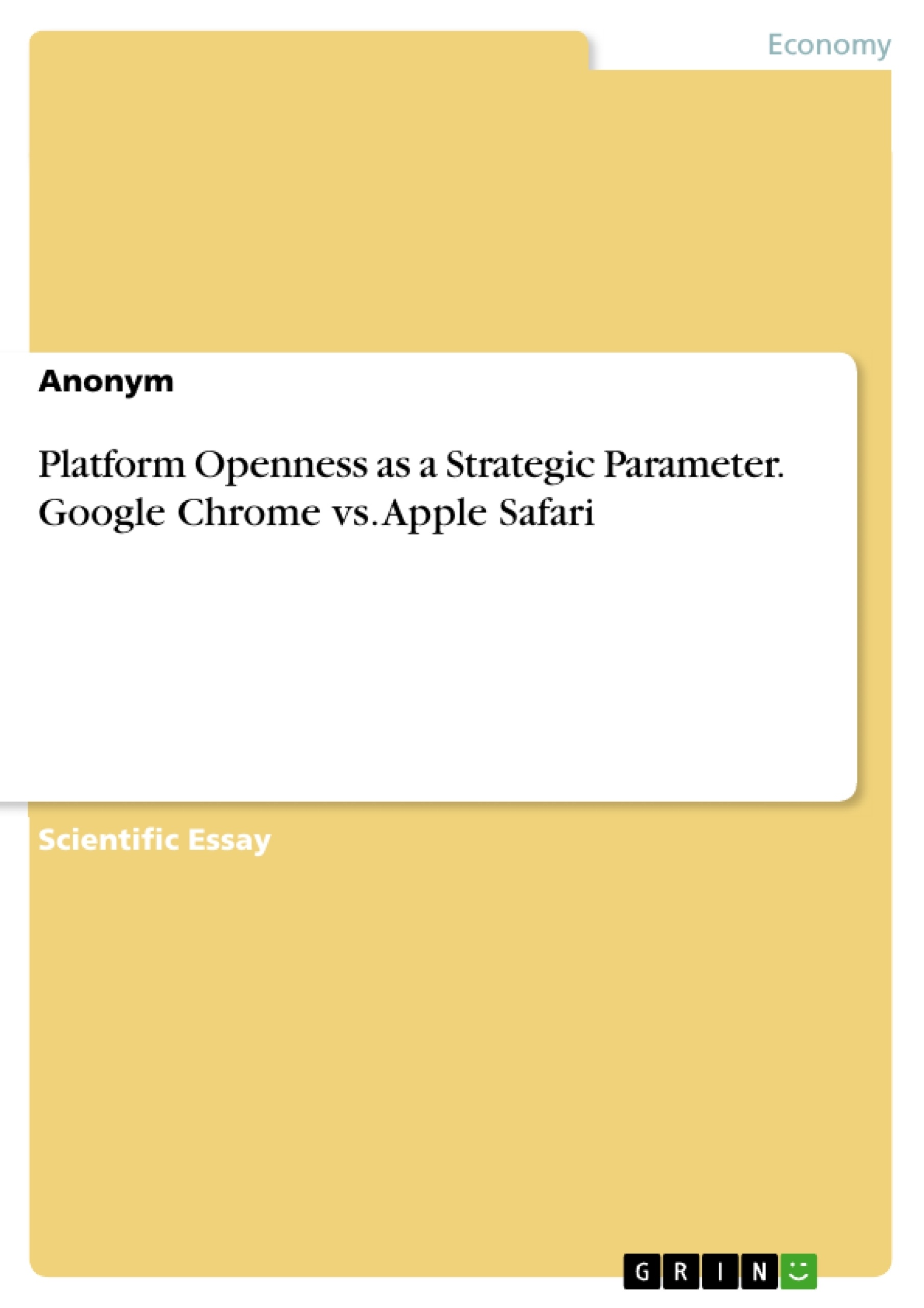The following report is dedicated to platform openness as a strategic parameter using the example of Google Chrome and Apple Safari.
Even in the early days of the Internet and the use of browsers to access the Internet, there was a competition in the market. This competition between the browsers of Netscape (Netscape Navigator) and Microsoft (Internet Explorer) became known under the synonym " first browser war ". In December 1994, the market share of Netscape Navigator 1.0 was about 80%, while the share of Internet Explorer was 3%.
In November 1997, Microsoft's share was already 39%, while Netscaper's share dropped to 53%. Microsoft emerged from the war as the clear winner. For Shapiro and Varian (1999), the victory was due on the one hand to the financial advantage that Microsoft had over Netscape, and on the other hand to the Microsoft operating system, through which Internet Explorer reached many potential customers. As a result of the browser war, Netscape made the source code for all its products publicly available in 1998. This was not only the birth of today's browser "Firefox", but also the birth of today's well-known open source projects in the browser market.
The first browser war shows that in the early days of browsers, factors such as "open source" or "extensions" and the associated platform openness played only a minor role in the market environment.
Inhaltsverzeichnis (Table of Contents)
- Introduction
- Theoretical background
- Two-sides markets, platform and platform openness
- Ecosystem in a platform environment
- Platform governance
- Platform competition
- Platform openness as a strategic parameter in practice
- Classification of internet browsers as a platform
- Extensions as drivers for platform openness and their disadvantages
- Limitation of platform openness and their solutions
- Conclusion
Zielsetzung und Themenschwerpunkte (Objectives and Key Themes)
This work explores the concept of platform openness as a strategic parameter in the context of internet browsers, using Google Chrome and Apple Safari as examples. It analyzes the role of platform openness in driving innovation and competition within the browser market.
- Two-sided markets and their influence on platform development
- Platform openness and its impact on user experience and innovation
- The importance of platform governance in managing ecosystem growth
- The role of extensions in driving platform openness and the challenges associated with them
- The limitations of platform openness and strategies for overcoming them
Zusammenfassung der Kapitel (Chapter Summaries)
- Introduction: This chapter provides a brief overview of the historical context of browser competition, highlighting the "first browser war" between Netscape Navigator and Internet Explorer. It introduces the concept of platform openness and outlines the structure of the report.
- Theoretical background: This chapter defines and explores the concepts of two-sided markets, platform ecosystems, and platform governance. It discusses the relationship between platform openness and user utility, as well as the importance of managing platform ecosystems effectively.
- Platform openness as a strategic parameter in practice: This chapter analyzes the internet browser as a platform, focusing on the role of extensions as drivers for platform openness. It explores the advantages and disadvantages of extensions, as well as the limitations of platform openness and potential solutions.
Schlüsselwörter (Keywords)
The primary keywords and focus topics of this work include platform openness, two-sided markets, internet browsers, platform ecosystems, platform governance, extensions, and strategic parameters.
Frequently Asked Questions
What is platform openness in the browser market?
Platform openness refers to the degree to which a browser allows third-party developers to create extensions and access its source code, fostering innovation and competition.
How do Google Chrome and Apple Safari differ in openness?
The report analyzes how Google Chrome uses high openness as a strategic parameter compared to Apple Safari's more controlled ecosystem within the Apple platform.
What was the "first browser war"?
It was the competition in the 1990s between Netscape Navigator and Microsoft Internet Explorer, which Microsoft won by bundling its browser with the Windows operating system.
What role do extensions play in platform ecosystems?
Extensions are key drivers for platform openness, as they allow users to customize their experience and provide additional utility through third-party innovations.
What are the disadvantages of high platform openness?
High openness can lead to security risks, potential performance degradation from too many extensions, and challenges in maintaining consistent platform governance.
- Quote paper
- Anonym (Author), 2021, Platform Openness as a Strategic Parameter. Google Chrome vs. Apple Safari, Munich, GRIN Verlag, https://www.grin.com/document/1004685



